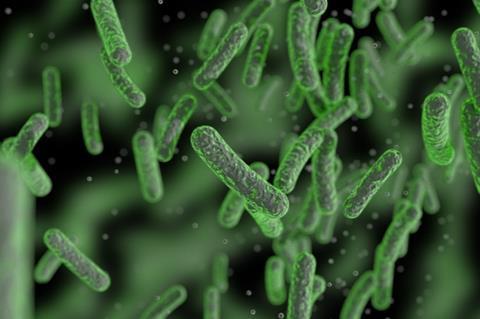A team of academics from Aston University and the University of Warwick has secured a £1.8m grant to engineer microbial cell factories to produce membrane proteins which will support future drug screening and sustainable chemical production.

Membrane proteins are crucial molecules on the surface of cells with numerous biological functions, such as sensing hormones or cell communication. The top ten selling medicines worldwide and multiple vaccines, including those for COVID-19, hepatitis B and whooping cough, target membrane proteins. The manufacture and purification of membrane proteins is also frequently used in pharmacology to identify new drug molecules which may inhibit or activate protein function.
Sustainable chemicals
Some membrane proteins are useful as catalysts for the production of sustainable chemicals. For example, some membrane enzymes can be used to fix carbon, reacting carbon dioxide from the air and enable cells to turned them into useful chemicals that can be used as feedstocks in biomanufacturing processes, while others can degrade plastics. The team will explore these applications with academic and industrial collaborators.
However, engineering production of high levels of functional membrane proteins is challenging due to biological and technological roadblocks – with complex processes of membrane production placing large amounts of stress on cells. This limits the efficiency of drug screening and reduces the identification of new drugs.
Thanks to funding from the UK Research and Innovation (UKRI) Technology Missions Fund, the research team will focus its efforts on two of these challenges: the identification of cellular production bottlenecks and cellular stresses; and the membrane environment that surround the proteins.
Microbial cell factories
By combining state-of-the-art computational whole cell models and molecular dynamics simulations with cutting edge molecular biology and biochemistry tools, the team will engineer microbial cell factories which can self-regulate their protein production in response to stress and have the optimal membrane environment to support protein function. Together these new technologies will increase yields of high-quality functional proteins, simplifying and shortening the time required to produce key biomedical proteins for drug screening.
The grant will help to support the work of the newly founded Aston Institute for Membrane Excellence (AIME), which combines the areas of membrane protein biochemistry and polymer science to create an innovative solution to global challenges.
Dr Doug Browning, lecturer in biosciences at Aston University, said: “We are absolutely thrilled to receive an Engineering Biology Mission Award, with our colleagues at Warwick. This funding, in conjunction with our industrial partners, will enable us to design and construct new expression systems that will produce high-value membrane therapeutics, which can be used in the fight against many important medical diseases. This award builds on the recent establishment of the Aston Institute for Membrane Excellence (AIME), with a £10m grant from Research England, and firmly places Aston University at the forefront of membrane biology.”
Feedback control
Dr Alexander Darlington, project lead and assistant professor at the University of Warwick School of Engineering, said: “We use feedback control in our everyday lives – think of a thermostat which only calls for heat when the temperature drops below a certain level or a car’s cruise control which mains constant speed irrespective of hills. Incorporating these engineering concepts into cellular manufacturing platforms will enable cells to balance their own health against production of our desired proteins and enable us to achieve higher yields of important drug targets for future research.
“I am delighted that our project has been selected for funding and am looking forward to working with the wider research team across Warwick, Aston and our industrial partners. We’ll be organising a series of seminars and workshops to discuss the wider challenges of membrane protein engineering and we are excited about the future collaborative opportunities we hope these bring.”
Professor Phillip Stansfeld, University of Warwick School of Life Sciences, said: “Membrane proteins are integral to both life and the development of novel therapeutics; however, these proteins remain difficult to characterise structurally. With the recent computational revolution in protein-structure prediction and design approaches, it is timely to study the dynamics of computationally optimised membrane proteins and develop approaches to rationally escalate their structural determination.”







No comments yet